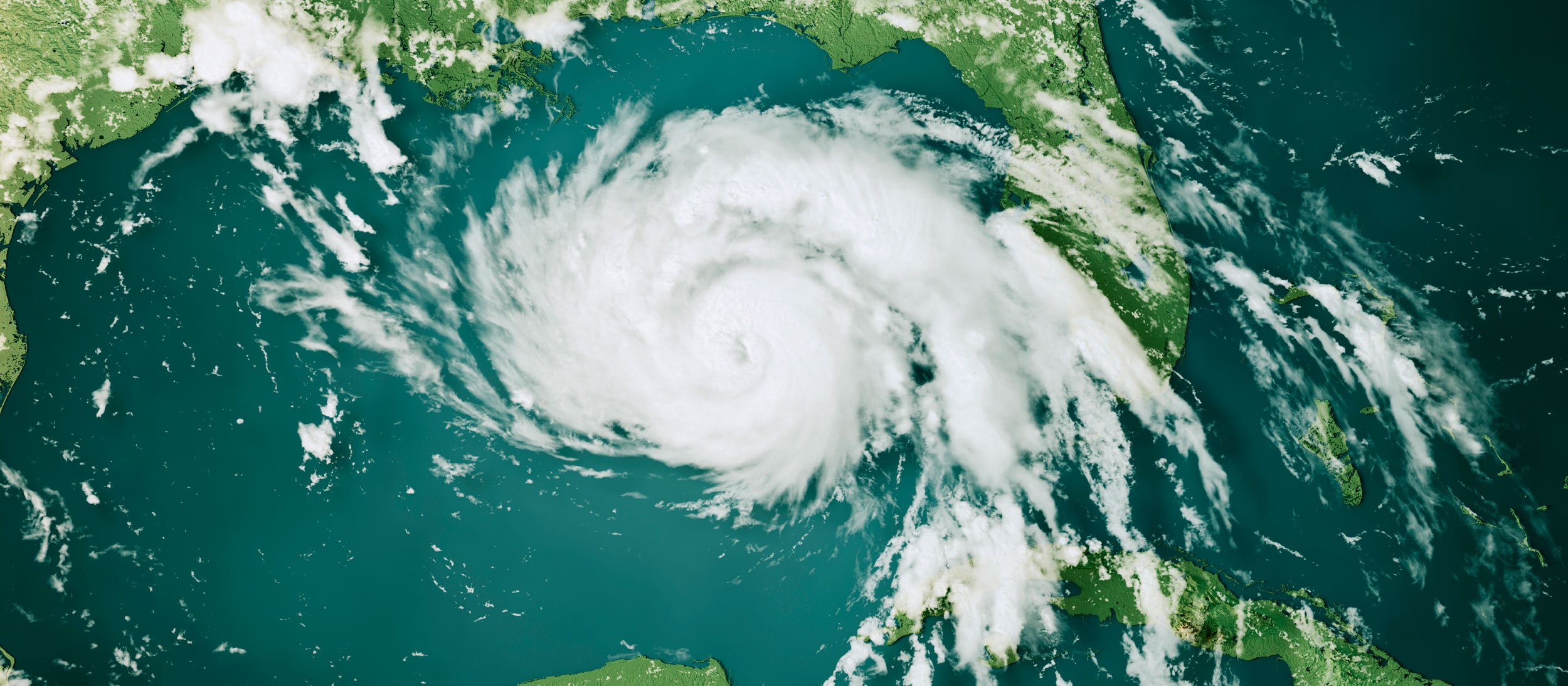Claim Center
We're in the business of helping people, providing prompt and personal claims service when you need us the most.
Call 877-242-2544 anytime, day or night, to report claims. You may also contact your independent agent to report a claim.
- Personal & Business ClaimsLearn More
- Life ClaimsLearn More
- Workers' Compensation ClaimsLearn More
Plan & Protect
Reduce risks and enjoy peace of mind with these tips and insights to protect what matters most.
Get 'Hurricane Ready' Before Storms Threaten Your Business

Take steps to minimize damage to your business from hurricanes.
Atlantic hurricane season runs from June 1 to November 30, though storms can take place outside of those dates. First and foremost, take whatever precautions are necessary to protect yourself and the people around you. While property preparations are important, they’re not worth risking life or health.
If you need to evacuate, do so, as long as you have time to reach a place of safety. Don’t be caught on the roads in your car or attempt to drive through water-covered streets. You can track storms through the National Hurricane Center. Once the storm reaches your area, stay inside, away from windows and possible flying debris. If you have sufficient time, here are some simple things you can do to prepare your business:
Property
Clean out your gutters
Remove leaves and other debris, first by hand to get rid of the large particles and then with a scraping tool and water hose. This helps to prevent overflows that could cause interior damage.
Make sure downspouts and window drains properly guide the water away from the structure
Direct downspouts at least six feet from the foundation. Clear any obstructions.
Clear your outdoor spaces of potential flying debris
Move inventory, signs that aren't secure, trash cans or other loose items inside.
Protect your windows and glass doors
If you have functional shutters, secure them. Consider plywood for covering large glass windows and doors.
Move business and construction vehicles to higher ground
Keeping vehicles and other movable property out of harm’s way can shorten the downtime faced by your organization and get you back in business sooner after the storm has passed.
Equipment and Supplies
Test your generator or battery backup
Be prepared for an extended power outage. Store extra fuel safely and only in approved containers. Don’t operate portable gas generators indoors or in enclosed spaces where it could lead to carbon monoxide poisoning.
Charge your cell phone and any extra batteries
Adjust settings to eliminate non-essential apps and preserve battery life. Store emergency phone numbers in your contacts, including family members, employees, your doctor, your insurance agent and your insurance company’s claims phone number. Keep a paper copy in case you lose power.
Stock up on flashlights, spare batteries, food and water
Keep your emergency kit supplied with provisions.
Check your first aid kit
Keep it stocked with the basics to treat minor scrapes or injuries; in the case of a disaster, emergency medical services may be limited to life-threatening cases. Keep several days’ supply of prescription medications on hand.
Know where your emergency shutoff valves are located
In the event of damage, you may need to cut off electricity, water or gas.
General Preparations
Understand the coverage provided in your insurance policy
Things like “flood” and “earth movement” may be limited or excluded under some insurance policies. If something isn’t clear to you, contact your agent and get an explanation of exactly what your policy will provide for you.
Store a copy of your insurance policy
It’s best to keep a copy off-site, in a safe deposit box or digitally in a location you can access from anywhere. If you must evacuate, take copies of key papers with you, including property deeds and bank accounts. Make sure your computer backup files are stored in the cloud or at an off-site location that will not be impacted.
Identify the safe places in your workplace
Know where to go away from windows, skylights and glass doors in case the storm spawns a tornado.
Keep a property inventory
If a storm is imminent, it may be too late to thoroughly document your belongings, but even taking cell phone photos of each room can help if you need to file an insurance claim later.
More Information
Department of Homeland Security’s Ready.gov site
National Weather Service Hurricane Preparation Page
This loss control information is advisory only. The author assumes no responsibility for management or control of loss control activities. Not all exposures are identified in this article. Contact your local, independent insurance agent for coverage advice and policy service.